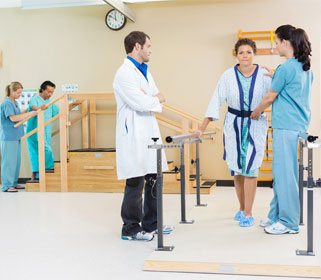Home » Hospital & Durable Medical Equipment » All About Finger Pulse Oximeters » All About Finger Pulse Oximeters
All About Finger Pulse Oximeters
Creating a healthy environment for your family and for your patients begins with the right equipment – like finger pulse oximeters. These small, portable devices allow you to determine the oxygen levels in the blood of the patient, which can help to rule out numerous conditions when there is an emergent situation. When time is of the essence, a finger pulse oximeter can be the best way to determine if medical intervention is necessary – and how quickly it needs to be summoned.
What These Devices Do:
When you use finger pulse oximeters, you're measuring the amount of oxygen in the body and then seeing the results as a measurement of a percentage. The normal percentage of oxygen in the bloodstream should be over 94%, meaning that your bloodstream should be carrying a fair amount of oxygen at any given time. This makes sense. As your blood moves through your body, it is supposed to transport everything from fuel in to wastes out, so if your blood isn't getting the oxygen it needs to transport, parts of your body will be affected. At the same time, a finger pulse oximeter is also taking a measurement of your pulse, or your heartbeat. While a normal pulse rate can vary widely, depending on your mood and your condition, anything that's over 110 without any exertion is considered to be abnormal and something that should be closely watched.
Situations in Which a Finger Pulse Oximeter is Necessary:
If you're working in a medical office or in a setting where you might need to monitor the health of others, it's a safe bet that finger pulse oximeters are going to be available already – or at least, they should be. By periodically monitoring the oxygen levels of your charges, you can attend to subtle changes before they become emergent. If you are caring for those who are unable to tell you when things hurt or when they feel ill, a finger pulse oximeter can do the work for them, alerting you to do something for them. There are also medical conditions that might call for the use of a finger pulse oximeter for monitoring oxygen levels: cancers, lung troubles, asthma, allergies, etc. Whenever someone might be have troubles breathing, you want to make sure they are getting enough oxygen in their bloodstream – if not, they will need assistance with breathing or perhaps additional oxygen from a tank and tubing.
While you might never need finger pulse oximeters, if you have someone with a medical condition in your family, it never hurts to be prepared. Many first aid instructors will also recommend purchasing these small health monitors as they can help when you are away from medical facilities – like when you are camping. Even though finger pulse oximeters aren't going to provide medical care, it does help you monitor a patient until help arrives. And when that help arrives, you will be able to tell them what you've seen on the monitor, helping to advance the care they will give.
MSEC remains dedicated to providing the very best and the very latest in medical supplies and equipment. We never cease to be on the lookout for the latest innovation that will benefit both our many clients and the patients they dedicate their lives to caring for. If you have any difficulty finding your choices in our vast inventory, call our customer service at 1-877-706-4480 to speed up your order or to make a special request. We are always happy to help you.













